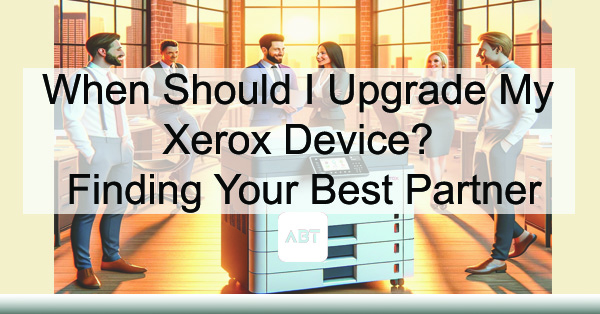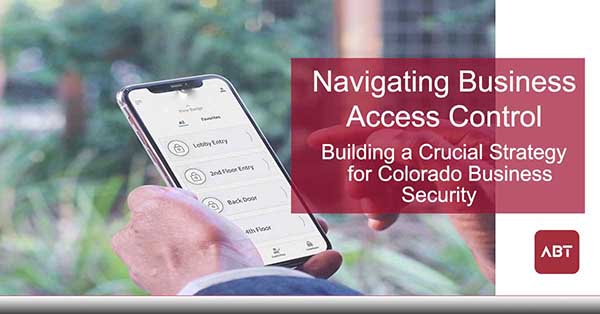In an evolving world where businesses are facing increasing security challenges, the implementation of effective access control measures has become paramount. Recent articles (find articles posted below), such as those published in The Denver Post and KRDO News, shed light on the critical role access control plays in safeguarding businesses from crime, addressing homelessness crises, and managing the growth of private security services. We explore the significance of business access control and how it helps mitigate security risks and foster a safer business environment to keep you, your employees, and your business assets secure.
Building A Crucial Strategy Access Control in Colorado Business Security
Ensuring Security Amidst Homelessness Crisis
The Denver Post’s article from March 7, 2023, highlights the significant steps Denver businesses are taking to address the homelessness crisis by employing private security personnel. As businesses grapple with the delicate balance between compassion and security, access control emerges as a key solution.
A comprehensive access control system empowers businesses to manage who enters their premises, allowing them to provide access to authorized individuals while ensuring the safety of employees, customers, and those seeking shelter nearby. We’re seeing the highest adoptions from complexes and property management, businesses in both downtown Denver and Colorado Springs, the subsequent suburbs, as well as larger corporations looking to maintain security and access management.
Adapting to the Growth of Private Security Services
The rapid growth of private security services, as detailed in The Denver Post’s article on March 8, 2023, underscores the evolving landscape of business security. The increased demand for private security personnel has led to a shortage of guards, prompting businesses to seek innovative strategies for protection.
In this scenario, access control systems prove indispensable. By deploying advanced access control technologies, such as biometric authentication, smart card readers, and video surveillance integration, businesses can optimize their security workforce while maintaining strict control over who enters their premises. In a world where third-party security companies are struggling to hire and retain quality officers, implementing an access control system complete with cameras, entry management, and smartphone access can fill the gap.
Mitigating Crime through Access Control
The series of crimes reported in the KRDO News articles from April 25, and February 19, 2023, remind us of the pressing need for robust security measures. The East Colorado Springs business complex and the Southeast Colorado Springs business, as examples, both fell victim to criminal activities, underlining the importance of preventive strategies.
Access control, in this context, acts as a first line of defense. Restricting unauthorized access through electronic locks, access cards, and visitor management systems can deter criminals and significantly reduce the risk of such incidents.

Elements of an Effective Access Control System
To establish a comprehensive access control strategy for your business, consider the following key elements:
- Identification and Authentication: Implement multi-factor authentication methods, such as key cards, PIN codes, biometric scans, or even mobile apps, to ensure that only authorized personnel can enter restricted areas.
- Visitor Management: Employ a visitor registration system that requires guests to provide identification and a purpose for their visit. Temporary access can be granted and monitored through the system.
- Surveillance Integration: Integrate access control with surveillance systems to enhance monitoring capabilities. This integration provides real-time insights into who is entering and exiting the premises, enhancing security responsiveness.
- Remote Access Control: Modern access control systems allow administrators to manage access remotely. This feature proves beneficial for granting access during non-business hours or in emergency situations.
- Scalability: Choose an access control solution that can grow with your business. Whether you have a small office or a sprawling campus, the system should adapt to your changing security needs.
The Future of Business Access Control
As businesses across Colorado continue to face dynamic security challenges, the role of access control will evolve further. Advancements in biometric technology, artificial intelligence, and the Internet of Things (IoT) are likely to reshape access control systems. Facial recognition, fingerprint scanning, and even behavioral analytics may become integral components of future access control strategies.
Security threats are evolving at an alarming pace, businesses must proactively adapt to safeguard their assets, employees, and customers. By embracing advanced access control technologies and implementing comprehensive strategies, your business can foster a secure environment while contributing to broader societal concerns.
As you navigate the realm of business security, remember that effective access control is not only a safeguard but also a steppingstone toward a safer, more prosperous future.

How can I find the best access control provider in Colorado?
Finding the best access control provider for your business is a critical step in ensuring the security of your premises. Here’s a step-by-step guide to help you identify and select the right access control provider:
- Assess Your Needs: Begin by understanding your specific security needs. Determine the number of entry points, the level of security required for different areas, and any special requirements your business might have. Consider factors like scalability, integration with other security systems, and remote access management.
- Research and Recommendations: Start your search by researching access control providers online. Look for reviews, testimonials, and case studies on their websites. Additionally, ask for recommendations from colleagues, industry associations, or security professionals you trust
- Vendor Credibility: Choose vendors with a proven track record and industry credibility. Look for providers with relevant certifications, awards, and a history of successful installations. This helps ensure that you’re working with a reliable and reputable company.
- Product Range and Technology: Evaluate the range of access control solutions the provider offers. They should offer a variety of technologies, such as key cards, biometric scanners, mobile apps, and integration with other security systems. A provider that keeps up with technological advancements is more likely to offer innovative solutions.
- Customization and Scalability: A good access control provider should be able to tailor their solutions to meet your specific needs. Ensure that their systems are scalable, allowing you to add or modify access points as your business grows or changes.
- Integration Capabilities: Consider whether the provider’s access control systems can integrate with your existing security infrastructure, such as surveillance cameras, alarms, and visitor management systems. Integrated systems can provide a more comprehensive security solution.
- User-Friendly Interface: The user interface of the access control system should be intuitive and easy to use. Complex systems can lead to confusion and errors, so prioritize a solution that simplifies access management tasks.
- Security Features: Security is paramount. Ensure that the provider offers robust encryption and authentication mechanisms to prevent unauthorized access to your system. Look for systems that offer features like real-time alerts, audit trails, and anti-passback to enhance security.
- Support and Training: A reliable provider should offer comprehensive training for your staff on how to use the access control system effectively. Additionally, inquire about their customer support services and response times for technical assistance.
- Cost and Value: Obtain detailed quotes from potential providers, including installation costs, hardware expenses, and ongoing maintenance fees. While cost is a factor, prioritize value over price. A reliable, feature-rich system might have a higher upfront cost but can save you money in the long run through enhanced security and reduced operational risks.
- Site Visit and Demo: Request a site visit from shortlisted providers. This will allow them to assess your premises and offer tailored recommendations. Ask for a demonstration of their system to understand how it works and how it aligns with your needs.
- References and Case Studies: Don’t hesitate to ask the provider for references or case studies of similar businesses they’ve worked with. Contact these references to gain insights into their experience and the effectiveness of the provider’s solutions.
- Contract and Warranty: Carefully review the contract terms and warranty conditions offered by the provider. Ensure that all aspects of the system, including installation, maintenance, and support, are clearly outlined in the contract.
- Future Expansion: Consider your business’s future growth plans. Choose a provider that can accommodate your changing security needs and adapt their solutions as your business evolves.
Remember that choosing an access control provider is a significant decision that directly impacts the security of your business. Take your time, conduct thorough research, and don’t hesitate to ask questions until you’re confident in your choice. We recommend a through perimeter assessment. To get started, reach out today to the ABT Team.
